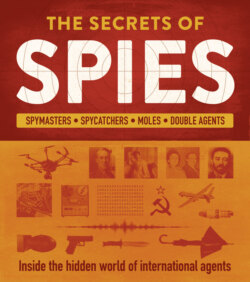Читать книгу The Secrets of Spies - Weldon Owen - Страница 42
На сайте Литреса книга снята с продажи.
ОглавлениеINTELLIGENCE IN THE ERA OF NAPOLEON
43
IMPERIAL INTELLIGENCE
Napoleon was clear in laying out his demands
for the acquisition of military intelligence:
“Carrying out of a rapid reconnaissance of
passes and fords, making sure to obtain
reliable guides, questioning the priest and the
postmaster, making rapid contact with local
inhabitants, sending out spies, translating and
analyzing postal correspondence, and finally
responding to the questions of the commander-
in-chief.” In real-world circumstances, however,
he was less happy with the intelligence he
received: “Nothing is so contradictory and
nonsensical as this mass of reports brought in
by spies and officers sent on scouting missions.
Often they do not even report their own
eyesight, but only repeat what they have heard
from panic-stricken or surprised people.”
“A GREAT PART OF THE
INFORMATION OBTAINED
IN WAR IS CONTRADICTORY,
A STILL GREATER PART IS FALSE
AND BY FAR THE GREATEST PART
IS OF DOUBTFUL CHARACTER.”
Carl von Clausewitz, Prussian military theorist
and officer in the Napoleonic Wars
Above: Sat astride his distinctive white horse, Napoleon watches as
Moscow burns. Russian troops had already abandoned the city to retreat
to the east. Napoleon’s invasion would end in a disastrous retreat.
